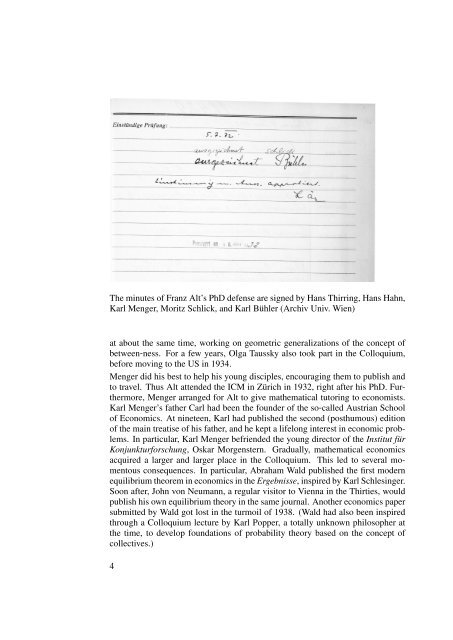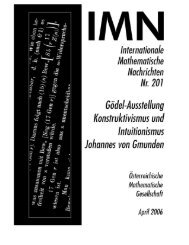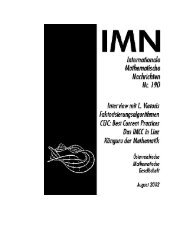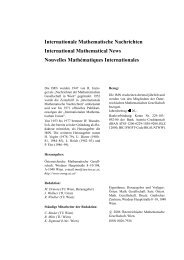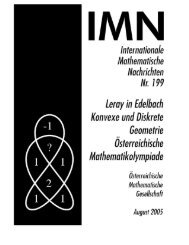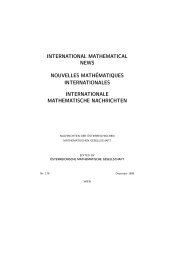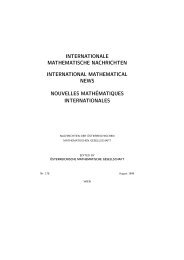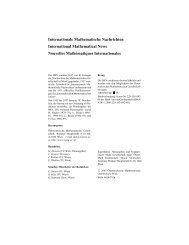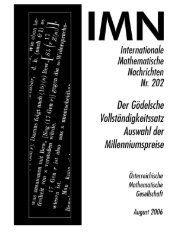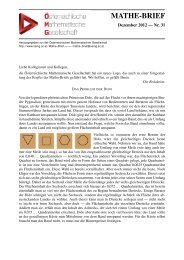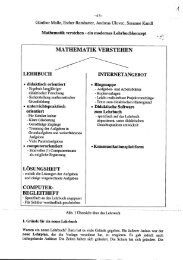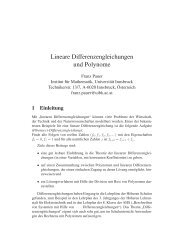218 - Ãsterreichische Mathematische Gesellschaft
218 - Ãsterreichische Mathematische Gesellschaft
218 - Ãsterreichische Mathematische Gesellschaft
Erfolgreiche ePaper selbst erstellen
Machen Sie aus Ihren PDF Publikationen ein blätterbares Flipbook mit unserer einzigartigen Google optimierten e-Paper Software.
The minutes of Franz Alt’s PhD defense are signed by Hans Thirring, Hans Hahn,<br />
Karl Menger, Moritz Schlick, and Karl Bühler (Archiv Univ. Wien)<br />
at about the same time, working on geometric generalizations of the concept of<br />
between-ness. For a few years, Olga Taussky also took part in the Colloquium,<br />
before moving to the US in 1934.<br />
Menger did his best to help his young disciples, encouraging them to publish and<br />
to travel. Thus Alt attended the ICM in Zürich in 1932, right after his PhD. Furthermore,<br />
Menger arranged for Alt to give mathematical tutoring to economists.<br />
Karl Menger’s father Carl had been the founder of the so-called Austrian School<br />
of Economics. At nineteen, Karl had published the second (posthumous) edition<br />
of the main treatise of his father, and he kept a lifelong interest in economic problems.<br />
In particular, Karl Menger befriended the young director of the Institut für<br />
Konjunkturforschung, Oskar Morgenstern. Gradually, mathematical economics<br />
acquired a larger and larger place in the Colloquium. This led to several momentous<br />
consequences. In particular, Abraham Wald published the first modern<br />
equilibrium theorem in economics in the Ergebnisse, inspired by Karl Schlesinger.<br />
Soon after, John von Neumann, a regular visitor to Vienna in the Thirties, would<br />
publish his own equilibrium theory in the same journal. Another economics paper<br />
submitted by Wald got lost in the turmoil of 1938. (Wald had also been inspired<br />
through a Colloquium lecture by Karl Popper, a totally unknown philosopher at<br />
the time, to develop foundations of probability theory based on the concept of<br />
collectives.)<br />
4


